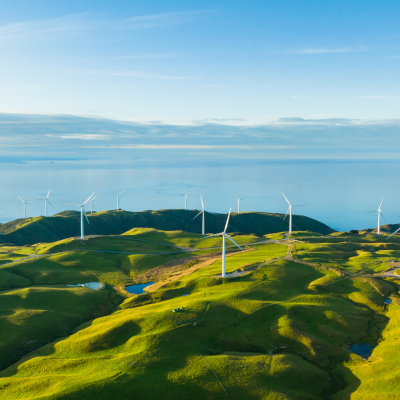Globally, we are seeing a growing consensus that measures to recover from the economic consequences of the COVID-19 crisis must also help countries achieve emission reductions and improve the economy’s performance on the environmental front. The Association of Southeast Asian Nations (ASEAN) has implemented the ASEAN Comprehensive Recovery Framework (ACRF), which was set up as an exit strategy from the crisis, and targets transformation to a green and circular economy. As small and medium-sized enterprises (SMEs) form the vast majority of businesses worldwide, it is essential to ensure they are a part of the green recovery. These firms confront specific hurdles in implementing greener practices. Some of these issues are shared by SMEs in general, such as access to funding, regulatory impediments, and knowledge gaps. There are other challenges for SMEs seeking to go green, not the least of which are determining the techniques and technologies most appropriate in a specific context, ways to gain access to them and how to ensure that they improve economic competitiveness.
SMEs constitute the great majority (97-99%) of enterprises in ASEAN member nations and employ the vast majority of people. They are critical economic growth drivers. As a result, greening SMEs is crucial to the region’s goal of long-term prosperity. Greening even smaller businesses, on the other hand, might be tougher. Most SMEs prioritize survival, focusing on factors such as short-term profitability, assuring day-to-day operations, preserving income, and paying salaries. This is especially true for small and micro businesses, which have relatively short time horizons.

Green funding for the development of SMEs is essential for long-term economic growth and social development. Quality SME infrastructure is a crucial enabler and can serve as the foundation for enhanced wages, livelihoods and human well-being. However, because green investment requires large resources, authorities face significant challenges in supporting infrastructure development. These challenges necessitate well-planned solutions that can accomplish the desired economic, social, and environmental goals at a reasonable cost, whether in ASEAN, Asia, the Asia-Pacific region, or elsewhere.
Aside from economic and environmental advantages, the green economy offers the potential for SMEs to become leaders in domains such as renewable energy installation, green service solutions and green consulting. For SMEs attempting to implement greener practices, firm size cuts both ways – although small businesses have fewer resources to implement green initiatives, they often have more flexibility than bigger businesses and sometimes can adopt new technologies more quickly.
Governments can directly grow the business case for greener practices through the use of efficient financial mechanisms. This involves, among other things, facilitating SMEs’ access to green funding, promoting the growth of green markets through green public procurement and fostering green corporate value chains, and instituting tax and tariff breaks for investments in more sustainable equipment. Many SMEs are eager to engage in more energy-efficient and environmentally friendly operations, but they need trusted partners to finance their investments as well as established legislative frameworks. However, businesses frequently encounter barriers to financing, with banks often hesitant to fund such investments and lacking employees who have the expertise needed to analyze SME initiatives.
SMEs with limited resources can take advantage of sustainability-focused financing schemes, government and private-sector incentives, and other programs that can help cover the early expenses of going green. Adopting a sustainability-driven agenda requires capital expenditure for new systems and technology.
Gunung Capital is an asset management group that invests in infrastructure, building materials, logistics, real estate, and other areas with the goal of achieving a sustainable green future. Gunung Capital invests in, owns, and operates a large portfolio of transformative potential, identifying aspects of value creation, enhancing economic transformation, and focusing on emission reduction and long-term transformations through investments in the carbon market and low-carbon technologies. Gunung Capital can help SMEs save money on operational expenses in the long run by improving resource efficiency in corporate operations and the supply chain.














